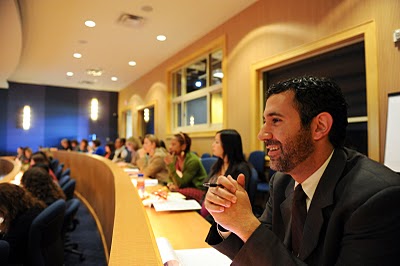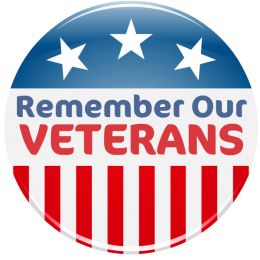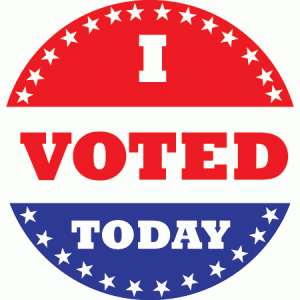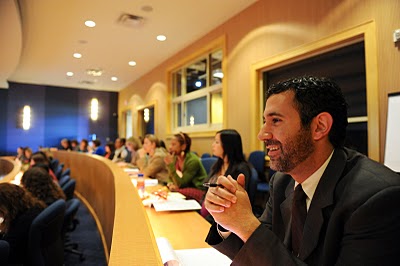November 12, 2010 at 11:35 am
· Filed under Legal Education, News and Developments, Public Interest Jobs, The Legal Industry and Economy
This week’s Bulletin begins and ends with stories on overburdened public defenders’ offices in Missouri. In between: a new project to serve veterans in Georgia; an op-ed on supporting legal services from the ABA’s president-elect; a “broken” legal aid system in British Columbia; a look at Michigan Law’s one-of-a-kind human trafficking clinic; a new, statewide legal services program in Wyoming; a sobering report on the fiscal state of nonprofit human services providers; a new pro bono project to engage senior law-firm lawyers in D.C.; and the Federal Career Intern Program may not be much longer for this world.
- 11.11.10 – the Nodaway News Leader in Missouri reports that the Nodaway County public defender’s office has a caseload “that has increased to 270% of what the state believes a normal caseload should be.” (See the final item below for more Missouri public defense news.)
- 11.10.10 – on the heels of the national Celebration of Pro Bono we were happy to read ABA President-elect William T. Robinson III’s piece in the Louisville Courier-Journal emphasizing the importance of both engaging in pro bono and encouraging Congress to “pass legislation to grant full FDIC protection for IOLTAs . . . during the upcoming lame-duck session” in order “to protect this important source of legal aid funding.” IOLTA accounts currently have FDIC protection, however that protection will expire at the end of 2010.
Keep reading the bulletin . . .
Permalink
November 10, 2010 at 12:34 pm
· Filed under Career Resources, Public Interest Jobs
Today’s guest post is shared by Leeor Neta, the Assistant Director for Public Interest Programs at Golden Gate University School of Law. After attending the 2010 NALP/PSLawNet Public Service Mini-Conference and EJW Conference and Career Fair he is sharing key insights from programming he attended at both conferences on GGU’s Law Career Services Blog. (Read Part 1)
 Finding and Making the Most of a Mentor
Finding and Making the Most of a Mentor
On the last day of the conference, I attended a session on how to find and maintain a mentor relationship. The speaker explained that there are three ingredients to successful mentorship: (1) reasonable expectations, (2) a strategic approach, and (3) a two-way relationship.
In order to ensure that one’s expectations are reasonable, mentees should ask themselves specifically what they are hoping to get out of the relationship. The mentor relationship cannot just be designed to find the mentee a job, but it can be designed to help the mentee acquire skills, act as a sounding board for the mentee, and offer answers to specific questions the mentee might have. Because no one mentor can do everything, mentees should “build a board of mentors”, each one of whom is available to provide advice and support on a specific topic.
Finding multiple mentors requires some strategic thinking, and that means planning where to find mentors and how to approach them. Everyone agreed that students need to create LinkedIn profiles and use keyword searches to identify potential mentors. Indeed, one of the attorneys in attendance confessed that she found a job through her LinkedIn profile.
Once a mentor is found, the mentee needs to make sure that the relationship remains “a two way street.” What that means is that mentees need to think about what they bring to the relationship — whether it be a certain kind of energy, a different perspective, or even knowledge about social media advocacy — and offer themselves as resources to their mentors.
Keep reading about student debt relief and equal access to justice issues . . .
Permalink
November 8, 2010 at 5:10 pm
· Filed under Career Resources, Public Interest Jobs
A new recurring feature on the PSLawNet Blog will be our weekly “PSLawNet Jobs Report” that will highlight new job opportunities posted on PSLawNet and public service career resources.
Need a job or internship? During the past week PSLawNet has posted: 85 new attorney positions, 55 internships, and 15 law related opportunities. Additionally, there are currently 1140 active opportunities in our job database. To search the database visit PSLawNet.
Featured New Positions:
Refugee and Immigrant Center for Education and Legal Services (RAICES) is a currently accepting applicants for a full-time staff attorney position, available immediately. RAICES is a Texas-based 501(c)(3) organization that promotes justice by providing free and low-cost immigration legal services and education to underserved immigrant children, families and refugees in Central and South Texas. Check PSLawNet for application details.
The Vera Institute of Justice is currently seeking interns to work closely with a small team of Vera program staff on projects that aim to improve immigrants’ access to justice. Current programs include a legal orientation program to provide detained individuals in removal proceedings with legal information, pro se assistance and access to pro bono legal services; a program to provide unaccompanied children in the United States with legal information and access to pro bono legal counsel; a program that trains law enforcement on the use of the U-visa; a program that is assessing promising police-immigrant relations practices; and technical assistance/consulting activities to assist police departments and other government agencies in overcoming language barriers and serving immigrant communities. The Vera Institute of Justice combines expertise in research, demonstration projects, and technical assistance to help leaders in government and civil society improve the systems people rely on for justice and safety. Check PSLawNet for application details.
Featured Public Service Career Resource:
Finding and Funding International Public Interest Opportunities is an online guide that provides background info and recommendations for students/attorneys embarking on international public interest careers. It is annually updated by NALP members at the Universities of Arizona and Georgia, and at the William & Mary School of Law. Download the guide.
Learn more about getting a PSLawNet job seeker or employer account . . .
Permalink
November 8, 2010 at 9:49 am
· Filed under Legal Education, News and Developments
We’ve recently posted about great work being done by law students throughout the country via legal clinics for veterans. On a related note, last week we came across an article about the naming of the William & Mary School of Law’s veterans clinic. (It’s called the Lewis B. Puller, Jr. Veterans Benefits Clinic, and you can read more about it here.) Most noteworthy to us, though, is that the article mentions how the clinic is run and how it’s been funded thus far. This information may be useful for students who are working with – or hoping to launch – a similar clinic now.
The Veterans Benefits Clinic accepted its first clients in January 2009. William & Mary law students working under the supervision of Adjunct Law Professors and retired JAG officers Stacey-Rae Simcox and Mark D. Matthews help veterans with their claims for benefits while students and faculty at Virginia Commonwealth University’s Center for Psychological Services and Development provide assessment, counseling and referrals to veterans in need of those services.
The clinic’s work is made possible, in part, by the support of the Jessie Ball duPont Fund and members of the William & Mary Law School Class of 1974. In addition, the Virginia Bar Association (VBA) announced Nov. 4 its Veteran’s Initiative is urging law firms to sponsor fundraisers to benefit William & Mary’s Veterans Benefits Clinic. The VBA Veteran’s Initiative seeks to educate attorneys about veterans’ legal needs and to enlist attorneys to provide assistance to veterans on a pro bono or reduced fee basis.
The partnership with VCU’s psychology professionals seems like a terrific idea, since substantiating eligibility and need for benefits and services is critical to securing them. It’s also good to see that the clinic has such diverse players as a charitable foundation, the state bar, and law school alumni supporting its work. We hadn’t thought of this before, but it makes a lot of sense to reach back to Vietnam-era graduates for support. Many served in the military themselves, and almost all of them watched friends and relatives adjust – sometimes with great struggle – to civilian life after military service.












Permalink
November 5, 2010 at 9:09 am
· Filed under Career Resources, Legal Education, News and Developments, Public Interest Jobs, The Legal Industry and Economy
This week: Strong demand for legal services in South Carolina; $350K from DOJ to law school for veterans clinic; 3 deferred law firm associates wrap up their public interest placements; in “brave people taking tough jobs” news, Missouri to get a new public defender; what will a Republican House do to the federal workforce?; loan assistance for U. of Tennessee public interest grads; foreclosure clinics in Kentucky; loan assistance for South Dakota prosecutors and defenders; the Wyoming Access to Justice Commission launches a new legal services program; a new DOJ program brings together law schools, firms, and public interest offices to combat domestic violence.
- 11.3.10 – just FYI South Carolina’s Greenville News is a running a subscription-only article entitled “Legal Services Faces Big Demand in Tough Times.” We seem to have let our Greenville News subscription lapse, but if you’ve got one…
Keep reading the bulletin . . .
Permalink
November 3, 2010 at 2:43 pm
· Filed under News and Developments
Congrats to The John Marshall Law School’s Veteran’s Legal Support Center & Clinic (VLSC)! The U.S. Department of Justice’s Office of Justice Programs has awarded VLSC a $350,000 to support its efforts to “work with the state court system to implement Veterans Courts; . . . develop the partnership with the U.S. District Court for the Northern District of Illinois to administer support for qualifying veterans appearing in Federal Misdemeanor Court; serve as the strategic depository for all scholarship addressing domestic violence issues . . . and assist other law schools across” the country to develop similar programming in their communities.
“This grant makes it possible for us to provide valuable legal support to those who have given so much to our country – the men and women who have served our nation in time of need.”
-The John Marshall Law School Foundation President John Lee.

VLSC is one of the first clinics of its kind in the country and is committed to addressing the legal needs of veterans seeking benefits from the U.S. Department of Veterans Affairs (VA). The program assists veterans by investigating and researching their VA benefit claims. The clinic also provides referrals to private attorneys for qualified veterans through a statewide network of pro bono attorneys.
“We ask a lot of our veterans. We put them in harm’s way. We ask that they give the last ounce of devotion that they possibly can and then sometimes when they get back state-side, we don’t always give them the support that they need. That is one of the reasons for our veterans clinic – to try and make sure that we do give the men and women who are veterans the help that they need.”
-John Marshall Dean John E. Corkery
Rep. Danny K. Davis (D-IL) congratulated the law school during the grant announcement ceremony for both receiving the grant and the school’s “tremendous outreach into the community.”
PSLawNet is always excited to hear about law schools providing legal assistance to our country’s veterans. Check out our earlier post to learn about two programs at The University of Detroit Mercy School of Law addressing the growing legal needs of low-income veterans.












Permalink
November 2, 2010 at 2:29 pm
· Filed under News and Developments
Students from the Voter’s Rights Project at Rutgers School of Law-Camden are volunteering their time to monitor participation and provide advice to voters at the polls today throughout Camden.
The Voters’ Rights Project is a non-partisan pro bono program established by Rutgers-Camden students, in 2004, in a effort to mirror the efforts of the national Election Protection program.
“The goal of the project is to ensure that every voter within Camden feels safe and is able to successfully exercise their right to vote without fear of intimidation,” said 2L Matt DePasquale, co-coordinator of the student-run project.
Students have registered dozens of voters, monitored Camden polling places, and developed a strong partnership with the Camden County Board of Elections. According to Eve Biskind Klothen, Assistant Dean for Pro Bono and Public Interest Programs at Rutgers–Camden
“[t]he Camden County Board of Elections has sought their assistance and input, and in turn conducts training for participating students. They then monitor elections as student observers; and now some students, after additional training, have been deputized to provide further assistance on Election Day.”
The students’ work does not stop after election day, throughout the year the project organizes voter registration drives and implements educational programming at local schools and community centers. In 2009, the project received national recognition when it was awarded received Equal Justice Work’s Exemplary Public Service Award for a student group. Read the full coverage.












Interested in learning about more election efforts today?
Permalink
November 1, 2010 at 12:27 pm
· Filed under Career Resources, Public Interest Jobs
Today’s guest post is shared by Leeor Neta, the Assistant Director for Public Interest Programs at Golden Gate University School of Law. After attending the 2010 NALP/PSLawNet Public Service Mini-Conference and EJW Conference and Career Fair he is sharing key insights from programming he attended at both conferences on GGU’s Law Career Services Blog. 
Best Advice I Know on Pursuing a Public Interest Career
On the last day of the NALP / PSLawNet Public Service Mini-Conference, I attended a panel discussion that indirectly shared some important advice on how to pursue a public interest career. I say that the advice was “indirectly shared” because the purpose of the panel was to discuss pathways to public policy and think tank careers. Two of the four panelists (Nicole Austin-Hillery, director and counsel for the Brennan Center for Justice, and Alejandro T. Reyes, associate counsel for the Lawyers Committee for Civil Rights Under Law) are involved in some of the most prestigious impact litigation and legal policy work in the nation.
Both of the panelists agreed that lawyers who work on policy need to understand the nexus between law and enforcement. In concluding that the “best policy percolates up from the street,” Ms. Austin-Hillery explained that a policy lawyer can’t craft effective policy unless she understands her clients and understands how to get them to tell their stories. A policy lawyer needs to make brief and effective arguments under pressure. A policy lawyer also needs to know how to work with opposing forces and different interests to negotiate on her clients’ behalf. Because effective communication and negotiation skills are the key to policy work, the entire panel agreed that a lawyer wanting to work on policy needs a solid foundation in litigation.
The panel also suggested that law students interested in policy work try to work for state legislatures, researching and helping to draft proposed legislation. International work experience, moot courts, and writing opportunities are also considered important. Everyone agreed that working for the Administrative Office of the Courts and State Bar Associations were ideal — and less competitive — ways to acquire policy work experience.
The panel’s best advice pertained to all aspiring public interest lawyers. First, they advised — as I have already done for many of you — that law students identify five to ten offices that they would like to work for and try to join their advisory boards. Many of those offices might need independent legal advice and the work that one does as a board member is a great way to leverage an employment offer once a position opens up. Students should consider a two-week immersion program, some of which are extremely affordable (one of the panelists described a program in Mexico that costs less than $800!).
Finally, the entire panel agreed that the best candidates for entry-level positions demonstrate through their resumes and cover letters that they were born to pursue the job for which they’re applying. Their resumes demonstrate a seamless progression of attention and commitment to a specific area. Therefore, “the sooner you can decide what it is you want to do with your legal career, the better prepared you will be when you apply for your first job.”
Keep reading to learn about postgraduate fellowship opportunities . . .
Permalink
November 1, 2010 at 10:28 am
· Filed under Legal Education, News and Developments, Public Interest Jobs, The Legal Industry and Economy
Perhaps a silver lining to the recession is that it’s given rise to some unique collaborations in delivering legal services to low-income clients and others on society’s margins. For instance, we have been writing about the development of temporary public -service placements for deferred law firm associates.
Here’s something similar. According to the National Law Journal, the Department of Justice has launched the Access to Justice for Domestic Violence Victims program:
The idea behind the Access for Justice for Domestic Violence Victims program is for law firms to hire recent law school graduates who have participated in a domestic violence clinic, then subsidize their full-time work at a legal aid organization for a certain period of time, said Tania Tetlow, the director of the Domestic Violence Clinic at Tulane University Law School in New Orleans.
There are two pilot programs at work now, one in New Orleans and one in Baltimore. Tulane is the participating NOLA law school and the University of Baltimore is active in Charm City. So, while the details are still being sketched out, it seems as if a student would participate in their school’s DV clinic, then would throw their hat in the ring to be hired by the firm, then take a temporary, full-time placement doing DV-prevention work with a legal services organization.
We at the PSLawNet Blog know that students on public service career tracks greet such programs with mixed feelings because the path toward a “regular” public interest job has become so difficult of late – there’s actually a quote in the NLJ story from the DV clinic director at the U. of Baltimore to the effect that $40,000 nonprofit jobs are harder to get than $140,000 law firm jobs. Nevertheless we are happy to see resources from the law firm world leveraged in favor of serving clients who are so vulnerable. And hey, it strikes us that a student who shows an unwavering commitment to working on DV prevention would be a very strong candidate for positions like these, maybe even if they aren’t on law firm career paths.












Permalink






























